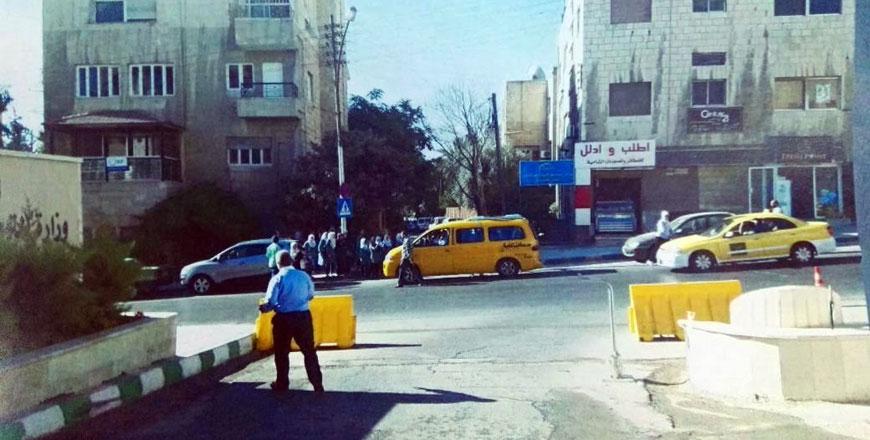You are here
No changes to medical exemptions for uninsured patients, PM says
By Jassar Al Tahat - Jan 09,2017 - Last updated at Jan 09,2017

Prime Minister Hani Mulki and members of his Cabinet attend a Lower House session on Sunday (Photo by Osama Aqarbeh)
AMMAN — Prime Minister Hani Mulki on Sunday dismissed as baseless reports that the government will suspend medical exemptions for the treatment of uninsured patients.
“Discussions over this are taking an unhealthy turn,” the premier warned, noting that the government decision entails treating citizens with insurance as those who are not insured.
“We agreed on including those who are over 70 years old in health insurance in a step towards an inclusive health insurance policy,” Mulki said.
“It is only justice,” he added, responding to MP questions during a Lower House oversight session that also included discussions of 15 questions directed to the government.
Minister of Health Mahmoud Sheyyab said, “4.5 million Jordanians are insured and 2.1 million are not according to 2015 statistics”.
He pointed out that the ministry and the government are working on a formula to ensure the availability of medical treatment to those uninsured.
Balqa MP Mutaz Abu Rumman addressed the issue of the minimum wage (JD190 per month) and the need for immediate action by the government in line with the rising prices and taxes enforced on citizens.
The government has said it is studying the possibility of increasing the minimum wage, but a “thorough review” is required as there are many employees at public agencies who receive the minimum wage.
Any increase, officials have explained, will cost the government millions of dinars, and this needs to be taken into consideration.
MP Abdullah Akaileh (Amman, 1st District) asked for further explanation about a projected independent centre for curricula, charging that it could signal the government’s willingness to privatise the Ministry of Education.
“The people will not forgive us if the curricula case got out of the ministry’s hands,” he warned.
In response, Deputy Prime Minister for Services and Minister of Education Mohammad Thneibat said: “The whole concept of the centre is still unclear, but all its outcomes will remain under the supervision of the Ministry of Education.”
“When the independent centre for curricula becomes more tangible and fills a specific purpose, the ministry will definitely present it to the MPs,” Thneibat concluded.
Also during the session, Awqaf Minister Wael Arabiyat clarified the confusion over whether the ministry had received grants from American agencies.
“The Zarqa awqaf directorate received support from UNDP to rehabilitate training centres and halls, without any intervention in the content and outcome of the training,” he told lawmakers.
Minister of Energy Ibrahim Saif stated that the feasibility study for copper mining in Jordan is still ongoing.
“We are still not certain about the amount of copper and its worth,” he explained.
“If the study proves it is feasible, tenders will be publicly announced and will result in a partnership between the selected mining firm and the government,” Saif added.
Related Articles
AMMAN — Deputy Prime Minister for Services and Minister of Education Mohammad Thneibat on Monday said the ministry is looking into the Jorda
AMMAN — Controversy over recent curricular amendments “gave the opportunity to many to ride the wave in order to serve their personal agenda
AMMAN — The Council of Ministers on Wednesday approved covering the expenses of harvesting the organs of a brain-dead person who does not ha












